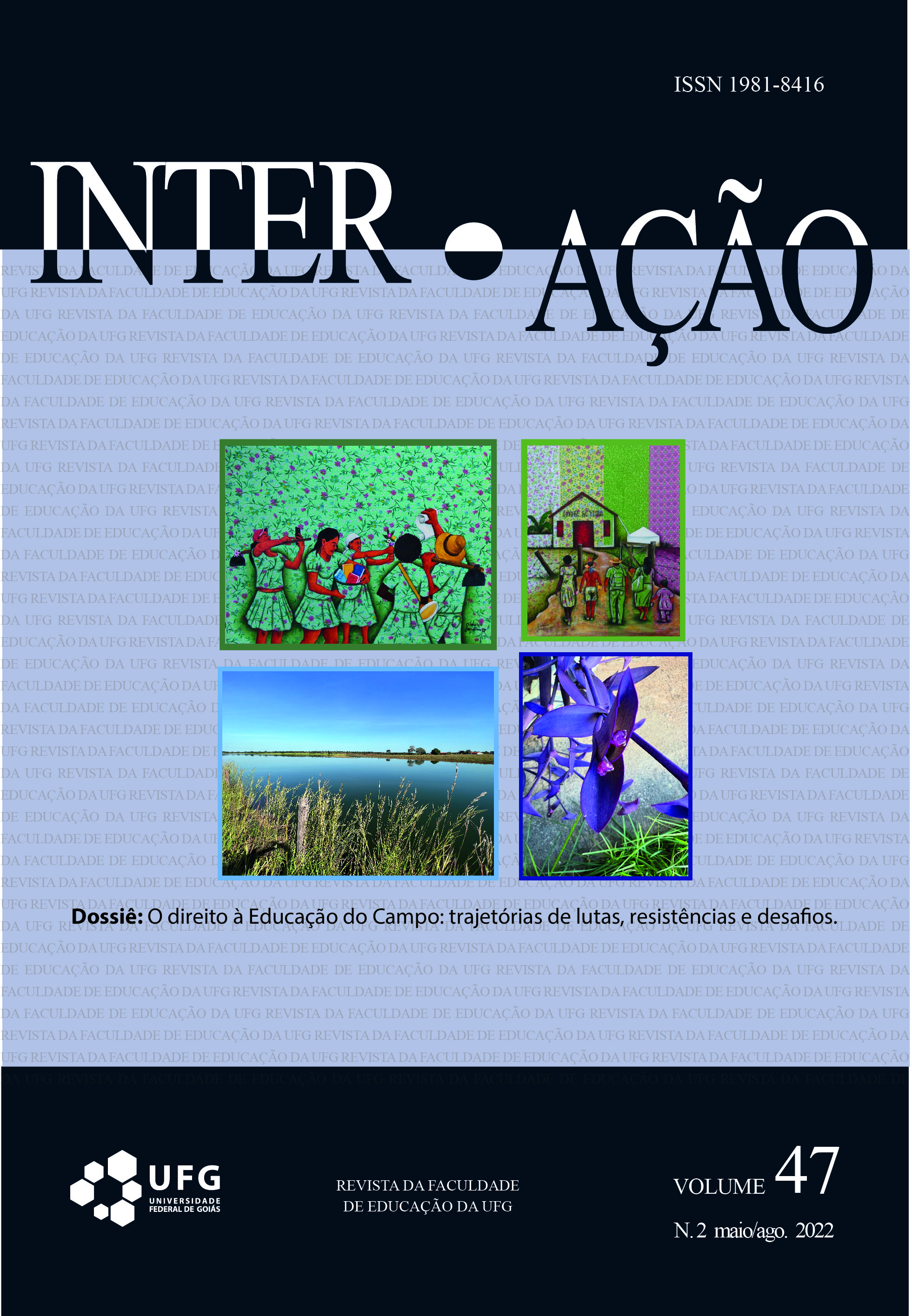“DIGITAL PATCHWORK QUILT”: AESTHETIC ASPECTS OF TEACHER FORMATION THROUGH (AUTO)BIOGRAPHICAL NARRATIVES
DOI:
https://doi.org/10.5216/ia.v47i2.71184Abstract
The objective of the present study is to reflect on the aesthetic aspects of teacher formation through (auto)biographical narratives produced from the methodology of the device “Patchwork Quilt” (Berkenbrock-Rosito, 2009; 2014) and developed remotely with a group of teachers, as a way to build individual and collective knowledge about learning and teaching, including technological education. Based on a self-assessment questionnaire, an analysis was made of the responses of the teachers participating in the research supported by Josso (2007), Delory-Momberger (2016), Passeggi (2010; 2016) and for the analysis of the textual corpus of this study, we chose the hermeneutic approach, the circle of understanding in the perspective of Gadamer (2000). The data reveal, within Josso's (2007) Singular Plural Paradigm, a (re)signification of the experience in the teaching training course itself, which, in the scope of Research-Formation, allows the construction of knowledge and stories shared in times and spaces via the technology aesthetics.
KEYWORDS: (Auto)biographical Narrative. Continuing Teacher Training. Digital Technologies. Digital Patchwork Quilt.
Downloads
Published
How to Cite
Issue
Section
License
Copyright (c) 2022 Deborah Christina Lopes Costa, Margaréte May Berkenbrock-Rosito

This work is licensed under a Creative Commons Attribution-NonCommercial 4.0 International License.
Inter-Ação uses the Creative Commons Attribution 4.0 License for Open Access Journals (Open Archives Initiative - OAI) as the basis for the transfer of rights. Open access means making documents available on the Internet free of charge, so that users can read, download, copy, distribute, print, search, or link to the full text of documents, process them for indexing, use them as input data for software programs, or use them for any other lawful purpose, without financial, legal, or technical barriers.
Authors publishing in this journal agree to the following conditions:
1) Authors retain copyright and grant the journal the right of first publication, with the work simultaneously licensed under the Creative Commons Attribution License, which permits redistribution of the work with attribution and first publication in this journal.
2) Authors are permitted to enter into additional, separate agreements for non-exclusive distribution of the version of the work published in this journal (e.g., for publication in an institutional repository or as a book chapter), with attribution and first publication in this journal.
3) Authors are permitted and encouraged to publish and distribute their work online (e.g. in institutional repositories or on their home page) at any time before or during the editorial process, as this may generate productive changes as well as increase the impact and citation of the published work.















